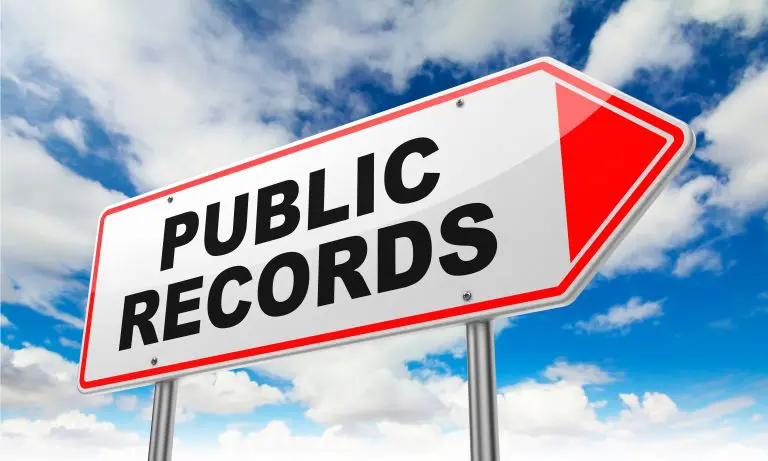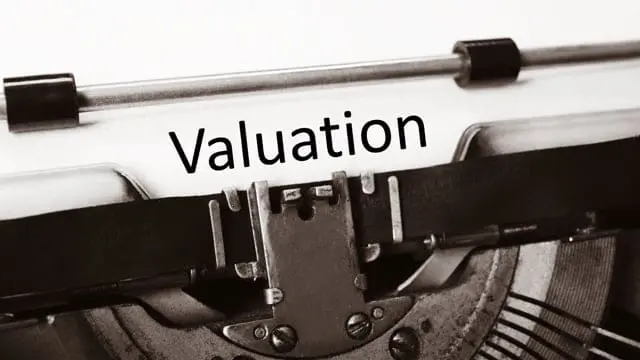When facing the daunting prospect of posting bail for yourself or a loved one, understanding bail bonds payment plans can be crucial. These flexible financing options offer a lifeline to those who may not have immediate access to the full bail amount, ensuring that individuals can secure their release from jail without facing overwhelming financial strain. In this comprehensive guide, we’ll explore the various aspects of bail bond payment plans, their benefits, and how they can be tailored to fit different budgets and financial situations.
The bail bond industry plays a significant role in the criminal justice system, providing a vital service to those who cannot afford to pay their full bail amount upfront. Bail bond companies typically charge a non-refundable fee, usually 10% of the total bail amount, to post bail on behalf of the defendant. However, even this reduced amount can be challenging for many individuals and families to come up with on short notice. This is where bail bond payment plans come into play, offering a more manageable way to secure release from jail.
One of the primary advantages of bail bond payment plans is their flexibility. Many bail bondsmen understand that financial situations can vary widely among clients, and they strive to offer customized payment options to meet different needs. These plans can include low down payments, monthly installments, and even interest-free options in some cases. By breaking down the bail bond fee into smaller, more manageable payments, these plans make it possible for more people to access bail services and avoid prolonged pretrial detention.
When considering a bail bond payment plan, it’s essential to understand the various options available. Some bail bond companies offer traditional financing plans, where clients make a down payment and then pay off the remaining balance in regular installments. Others may provide more innovative solutions, such as no money down bail bonds or plans that use collateral instead of cash payments. The specific options available can vary depending on factors such as the bail amount, the defendant’s criminal history, and the policies of the individual bail bond company.
One popular option is the low down payment bail bond. This type of plan allows clients to secure a bail bond with a minimal initial payment, often as low as 1-3% of the total bail amount. The remaining balance is then paid off over time through a series of scheduled payments. This option can be particularly helpful for those who need to act quickly to secure a loved one’s release but don’t have substantial funds immediately available.
Another option that some bail bond companies offer is zero down bail bonds. As the name suggests, these plans allow clients to secure a bail bond without making any upfront payment. Instead, the entire fee is spread out over a series of payments. While this can be an attractive option for those with limited financial resources, it’s important to note that zero down plans may come with stricter qualifying criteria or higher overall costs compared to plans with a down payment.
For those with valuable assets but limited cash flow, some bail bond companies offer collateral-based payment plans. In these arrangements, clients can use property, vehicles, jewelry, or other high-value items as collateral to secure the bail bond. This can be a good option for those who own significant assets but don’t have liquid funds available. However, it’s crucial to understand the risks involved, as failing to meet the terms of the bail bond agreement could result in the loss of the collateral.
When exploring bail bond payment plans, it’s important to consider the interest rates and fees associated with different options. While some companies offer interest-free payment plans, others may charge interest on the outstanding balance. Additionally, there may be fees for late payments or other services. Before committing to a payment plan, it’s crucial to carefully review all terms and conditions and ensure you fully understand the total cost of the bail bond over time.
The length of bail bond payment plans can vary widely depending on the bail amount and the policies of the bail bond company. Some plans may be structured to be paid off within a few months, while others might extend for a year or more. When choosing a payment plan, it’s important to consider your long-term financial situation and select a plan with a payment schedule you can realistically maintain.
One factor that can influence the availability and terms of bail bond payment plans is the defendant’s flight risk. Bail bondsmen take on significant risk when posting bail, as they become responsible for the full bail amount if the defendant fails to appear in court. As a result, individuals deemed to be higher flight risks may face more stringent requirements or higher costs when seeking a payment plan. Factors that can affect flight risk assessment include the nature of the charges, the defendant’s ties to the community, and their history of court appearances.
It’s worth noting that bail bond payment plans are not just about financial convenience; they can have significant implications for the overall legal process. By making bail more accessible, these plans can help defendants avoid the negative consequences of prolonged pretrial detention. Research has shown that individuals who remain in jail before trial are more likely to plead guilty, receive harsher sentences, and face long-term negative impacts on their employment and family relationships. By facilitating release through flexible payment options, bail bond companies play a role in mitigating these adverse effects.
When considering a bail bond payment plan, it’s crucial to work with a reputable and licensed bail bond agent. Look for companies with a strong track record of reliability and customer service. A good bail bondsman should be willing to explain all aspects of the payment plan in detail, answer any questions you may have, and provide clear, written documentation of all terms and conditions. Be wary of any company that pressures you to make quick decisions or seems reluctant to provide detailed information about their payment plans.
It’s also important to understand the legal obligations associated with bail bond payment plans. When you enter into a payment agreement with a bail bond company, you’re not just agreeing to a financial arrangement; you’re also taking on responsibility for ensuring the defendant appears in court as required. Failure to meet the terms of the bail bond agreement, including missing payments or the defendant failing to appear in court, can have serious legal and financial consequences.
Some bail bond companies offer additional services as part of their payment plans, which can provide added value for clients. These might include court date reminders, assistance with paperwork, or even transportation to court appearances. While these services may not be directly related to the financial aspects of the bail bond, they can be helpful in ensuring compliance with court requirements and reducing the risk of bail forfeiture.
It’s worth noting that the availability and specifics of bail bond payment plans can vary significantly from one jurisdiction to another. Different states have different laws and regulations governing the bail bond industry, which can affect the types of payment plans that companies are allowed to offer. For example, some states cap the maximum fee that bail bond companies can charge, while others have specific requirements for payment plan terms. It’s important to familiarize yourself with the laws in your area when considering bail bond payment options.
The rise of technology has also impacted the bail bond industry, including payment plans. Many bail bond companies now offer online payment options, making it easier for clients to manage their payments and track their progress. Some companies have even developed mobile apps that allow clients to make payments, receive reminders, and communicate with their bail bondsman directly from their smartphones. These technological advancements can make the process of managing a bail bond payment plan more convenient and accessible for many clients.
When considering a bail bond payment plan, it’s important to think about the long-term implications. While securing immediate release from jail is often the primary concern, it’s crucial to choose a plan that won’t cause undue financial strain in the months to come. Consider factors such as your income, expenses, and other financial obligations when deciding on a payment schedule. It may be tempting to opt for the plan with the lowest down payment, but if the resulting monthly payments are unsustainable, you could find yourself in a difficult situation down the line.
Some bail bond companies offer flexible payment schedules as part of their payment plans. This can be particularly helpful for those with irregular income or fluctuating expenses. For example, a plan might allow for lower payments during certain months and higher payments during others, aligning with the client’s financial situation. When exploring payment options, don’t hesitate to discuss your specific financial circumstances with the bail bondsman to see if a customized payment schedule can be arranged.
It’s also worth considering the potential impact of bail bond payment plans on your credit. While bail bond companies typically don’t report to credit bureaus, failing to meet the terms of your payment agreement could result in collection actions that could negatively affect your credit score. On the other hand, successfully managing a bail bond payment plan can be an opportunity to demonstrate financial responsibility, which could be beneficial if you need to seek credit in the future.
For those facing particularly challenging financial circumstances, some bail bond companies offer hardship programs or special payment arrangements. These might include temporarily reduced payments, payment deferrals, or other accommodations for clients experiencing financial difficulties. If you’re concerned about your ability to meet the terms of a standard payment plan, it’s worth inquiring about any hardship options that might be available.
It’s important to note that while bail bond payment plans can make bail more accessible, they are not the only option for those unable to pay the full bail amount. In some cases, it may be possible to petition the court for a bail reduction or to explore alternative forms of pretrial release, such as release on own recognizance o supervised release programs. A knowledgeable bail bondsman or attorney can help you understand all the options available in your specific situation.
When entering into a bail bond payment plan, it’s crucial to fully understand your rights and responsibilities. This includes knowing what actions the bail bond company can take if you miss payments or if the defendant fails to appear in court. Most states have laws governing the practices of bail bond companies, including limitations on collection activities and requirements for disclosure of terms. Familiarize yourself with these laws and don’t hesitate to ask questions if anything is unclear.
Some bail bond companies offer co-signer options as part of their payment plans. This can be helpful if the primary client doesn’t meet the company’s criteria for a payment plan on their own. A co-signer agrees to be responsible for the bail bond payments if the primary client fails to meet their obligations. While this can increase the chances of approval for a payment plan, it’s important for potential co-signers to fully understand the risks and responsibilities involved before agreeing to this arrangement.
It’s worth noting that the cost of a bail bond, even with a payment plan, is non-refundable. This means that even if the charges against the defendant are eventually dropped or they are found not guilty, the fees paid to the bail bond company are not returned. This is because the bail bond company’s fee is for the service of posting bail, not for the outcome of the case. Understanding this can help clients make informed decisions about whether to pursue a bail bond or explore other options.
When considering a bail bond payment plan, it’s important to think about the potential long-term costs. While a plan with a lower down payment might seem attractive in the short term, it could result in higher overall costs due to extended payment periods or higher interest rates. Take the time to calculate the total cost of different payment plans and consider how they align with your financial goals and capabilities.
Some bail bond companies offer discounts or special rates for certain groups, such as military personnel, union members, or senior citizens. These discounts can help reduce the overall cost of the bail bond and make payment plans more manageable. When exploring your options, be sure to ask about any discounts or special programs that might apply to your situation.
It’s also important to consider the potential impact of bail bond payment plans on family finances. In many cases, it’s not the defendant themselves but a family member who takes on the responsibility of the bail bond payments. This can create additional stress and financial strain on families already dealing with the challenges of a loved one’s arrest. When considering a payment plan, it’s crucial to involve all affected family members in the decision-making process and ensure that the chosen plan is sustainable for the entire household.
Some bail bond companies offer education and support services as part of their payment plans. This might include information about the legal process, guidance on how to comply with bail conditions, or resources for addressing underlying issues that may have contributed to the arrest. While these services are not directly related to the financial aspects of the bail bond, they can be valuable in helping clients navigate the legal system and reduce the risk of future arrests.
When exploring bail bond payment plans, it’s important to be aware of predatory practices that some unscrupulous companies might employ. This could include hidden fees, misleading terms, or pressure to accept unfavorable conditions. Always take the time to carefully review all documents, ask questions about anything that’s unclear, and don’t hesitate to seek a second opinion if something doesn’t feel right.
It’s worth noting that the bail bond industry, including payment plans, is subject to ongoing debate and reform efforts in many jurisdictions. Some critics argue that the current system disproportionately affects low-income individuals and communities of color. As a result, there have been efforts in some areas to reform or even eliminate cash bail systems. While these debates continue, bail bond payment plans remain an important option for many individuals seeking pretrial release.
In conclusion, bail bond payment plans offer a valuable solution for those facing the financial challenges of posting bail. By providing flexible options tailored to different budgets and financial situations, these plans can help ensure that individuals have access to pretrial release regardless of their immediate financial resources. However, it’s crucial to approach these plans with a clear understanding of the terms, costs, and responsibilities involved. By carefully considering all options and working with a reputable bail bond company, individuals can find a payment plan that meets their needs while minimizing financial strain and ensuring compliance with legal obligations.
Website citations used for this article:
- https://daytonabeachbail.com/b/what-is-the-importance-of-bail-bonds
- https://actionplusbb.com/post-bond/bail-bond-financing/
- https://balboabailbonds.com/blog/can-bail-bonds-be-paid-in-installments/
- https://bailproject.org/policy/turning-a-blind-eye-to-the-bail-bond-industry/
- https://www.gawlawyers.com/the-benefits-and-disadvantages-of-a-bail-bond/
- https://pcsbailbonds.com/what-you-need-to-know-about-bail-bond-financing/
- https://pcsbailbonds.com/things-you-should-know-about-bail-bonds-payment-plans/
- https://policyinstitute.iu.edu/news-media/stories/bail-bond-brief.html
- https://3dbailbonds.com/benefits-of-using-bail-bonds-services-near-me/
- https://www.beehivebailbonds.com/setting-up-a-bail-bond-payment-plan/









